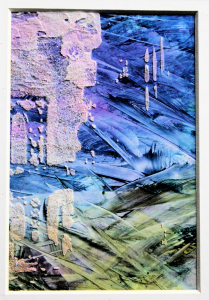Don Tillman’s loyalty, self-sacrifice, and problem solving genius, make him welcome as a friend. We first met Don in “The Rosie Project,” (see warning below) the story of a high functioning Asperger’s individual in search of a “mate.” Don exhibits marvelous STEM (science, technology, engineering, and math) skills, a phenomenal memory, but he woefully lacks social skills. He holds to an extraordinary rigid moral-ethical code, based on logic and conventional norms rather than religion. Among his virtues or symptoms, Don could not tell a lie. Paul Levine, who also includes Asperger’s spectrum characters in his novels, subscribes to the same truth-telling characteristic. However, in “The Rosie Effect, Don, the compulsive truth-teller and honest man, learns to spare the feelings of others by shielding them from the truth. Unfortunately, he hopelessly tangles himself in the thickest web of deceit. His growing cohort of friends risk all to assist him extricate himself before the authorities and Rosie catch up with him.
In his first two, and extremely successful novels, author, Graeme Simsion shares moments of genuine hilarity as well as deep pathos. His intense research allows his Australian characters the freedom to walk, jog and subway about New York City, Columbia University, genetics, nutrition, human development, psychology, and the pub scene. Ask Don to make you a cocktail sometime.
The devious Simsion snaps snares, large and small, catching his readers off guard. Just when Don seems to have escaped one threat, the trapdoor drops Don, and often his friends, into a deeper quandary. Through the Rosie Effect, Simsion takes the reader for a ride to a most unpredictable destination. Getting there is more than half the fun. Looking forward to the further exploits of Don Tillman and company.
WARNING: Peripheral characters in both “The Rosie Project” and “The Rosie Effect” use vulgarities and sometimes display a less than edifying attitude toward marriage. The protagonist rejects religion and may act aggressively toward religious practitioners. However, Don Tillman lives according to a strict moral standard, practices monogamy, demonstrates a selfless commitment to his friends, and like the “Good Samaritan” and “Abou Ben Adhem” assists strangers (who may later become friends) in various states of need. As James Henry Leigh Hunt might say of Abou Ben Adhem (and Don Tillman):
… “The names of those who love the Lord.”
“And is mine one?” said Abou. “Nay, not so,”
Replied the angel. Abou spoke more low,
But cheerly still, and said “I pray thee, then,
Write me as one that loves his fellow men.”
The angel wrote, and vanished. The next night
It came again with a great wakening light,
And showed the names whom love of God had blessed,
And lo! Ben Adhem’s name led all the rest.
Review (© 2015 Donald J. Mulcare)
Brooklyn Bridge, Nancy Ann Mulcare, Alcohol ink on yupo (© 2015 Nancy Ann Mulcare)

Hi Carolyn,
Simsion never spares his characters. His research amazes me. I’d like to know what makes him tick. Why his fascination with Asperger’s Syndrome?
God bless,
Don
This one’s been on my to-read list for a while.